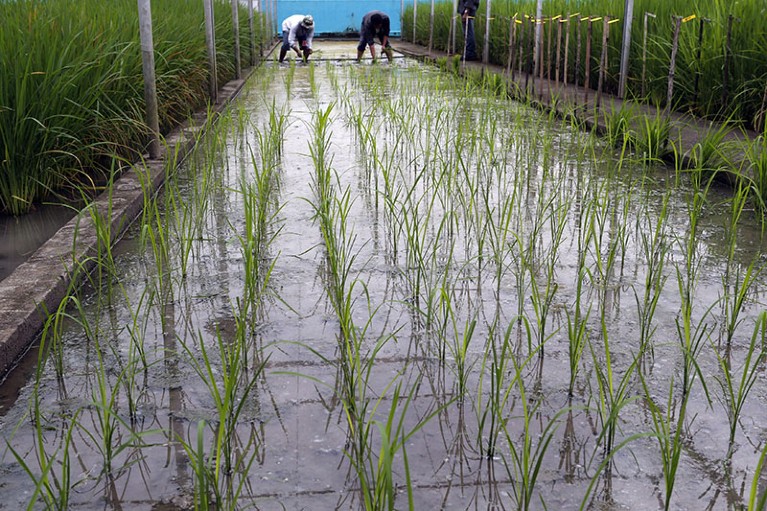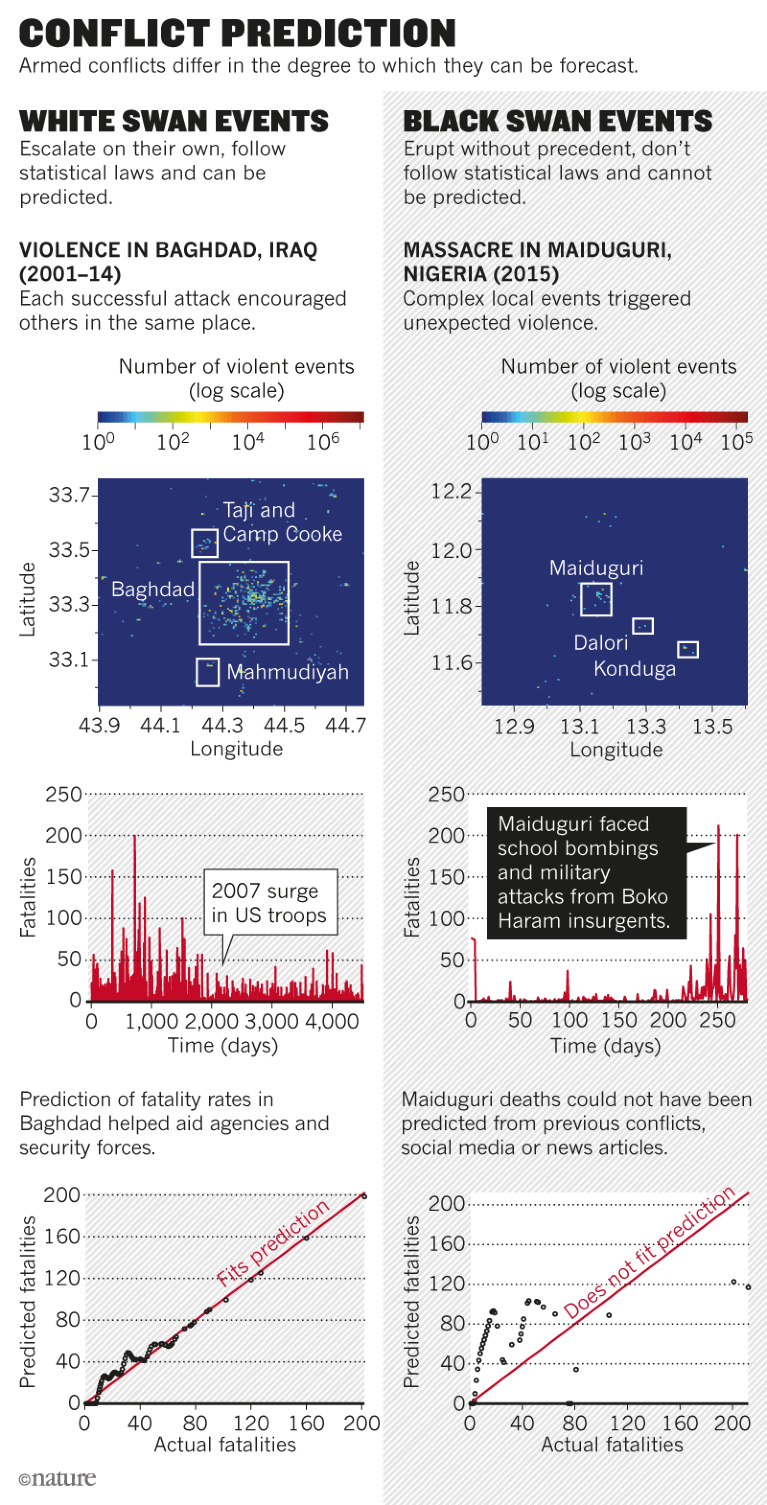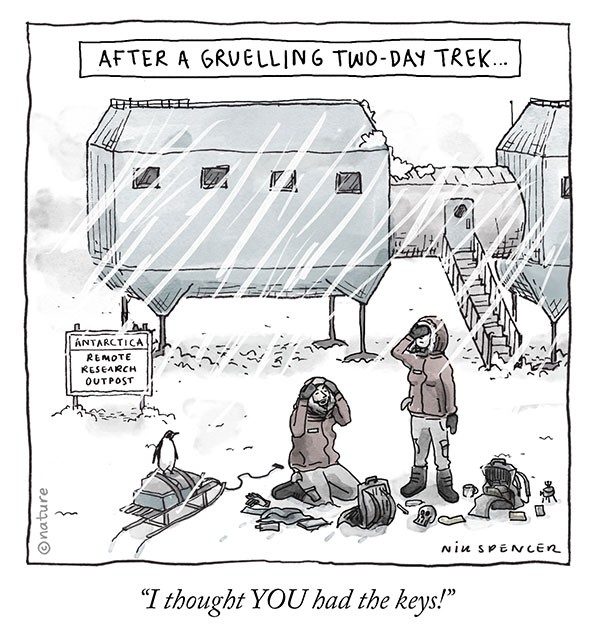Hello Nature readers, welcome to your essential daily briefing of science news.

Rice is a staple food for almost half the world’s population.Credit: Erik De Castro/Reuters
Permanent funding for rice gene bank
The International Rice Research Institute gene bank in Los Baños, the Philippines, is celebrating the news that it will receive US$1.4 million a year “in perpetuity” from the Crop Trust, an organization that supports food security and crop diversity. The gene bank harbours some 136,000 types of rice and its wild relatives, which can be used to develop new varieties that are resilient to drought, flooding and other effects of climate change.
Trump: “I'm not denying climate change”
US President Donald Trump has reversed previous statements calling climate change a hoax, but shied away from agreeing with the scientific evidence that it is caused by human activity. “I don't think it's a hoax,” he said. “I think there's probably a difference. But I don't know that it's man made.” Trump also said that scientists who say that climate change is contributing to an increase in extreme-weather events “have a very big political agenda”.
Watch more: US President Donald Trump interviewed on 60 Minutes (26 min video)
Asteroid touchdown delayed until January
The riskiest part of Hayabusa2’s mission — touching down on the asteroid Ryugu to collect a sample before returning to Earth — has been delayed. The asteroid’s surface is rougher than expected, so the mission team wants more time to plan the landing. The Japanese probe has already deployed three small landers, which have sent back images and data from the surface.
Institutions call for mass retractions
Harvard Medical School and Brigham and Women’s Hospital have recommended that 31 papers from the lab of cardiac stem-cell researcher Piero Anversa be retracted from medical journals. The studies “included falsified and/or fabricated data”, the institutions told Retraction Watch and STAT. Last year, the hospital agreed to pay US$10 million to the US government to resolve allegations that Anversa’s lab used bad data to fraudulently obtain grant funding from the National Institutes of Health. Anversa and a colleague sued the hospital in 2014, charging that its investigation of the allegations had damaged their careers. That lawsuit was dismissed.
QUOTE OF THE DAY
FEATURES & OPINION
A global forecasting system for war
Artificial intelligence is poised to boost our ability to forecast war and terrorism, argue three researchers. They describe how to create a global data-driven system to predict conflict and promote peace.

Source: Global Terrorism Database, https://www.start.umd.edu/gtd
Hawking’s co-author explains their last paper
Physics icon Stephen Hawking’s final work paves the way for a solution to “perhaps the most puzzling problem in fundamental theoretical physics today”, says his co-author Malcolm Perry. That problem is the “information paradox”: current theories about black holes say that the information carried by anything that had previously fallen into the hole would be lost to the Universe. This clashes with laws of physics that say that information, like energy, is conserved — thus the paradox. The paper describes a way of calculating the entropy of black holes, which Perry hopes will someday contribute to the resolution of the information paradox, and ultimately, to a theory of gravity that is compatible with quantum mechanics.
IPCC report prompts hope and despair
Scientists and others are contending with how to heed last week’s warning from the Intergovernmental Panel on Climate Change (IPCC) that humanity must slash its carbon emissions immediately to save Earth’s ecosystems and inhabitants from the worst effects of climate change.
• Former Irish president and United Nations bigwig Mary Robinson, who now hosts a climate-change podcast, says that grim scientific prognoses must not paralyse civil society. “I’ve learned from Archbishop Desmond Tutu to be a ‘prisoner of hope’,” she says. “Hope brings energy.”
• Researchers studying everything from frogs to glaciers are having to watch what they love disappear, sometimes over just a few field seasons. Pulitzer-winner environmental reporter Elizabeth Kolbert explores a crop of books in which scientists grapple with hope and hopelessness. “Is the glass ninety-five per cent empty or is it five per cent full?” she asks.
QUIRKS OF NATURE

